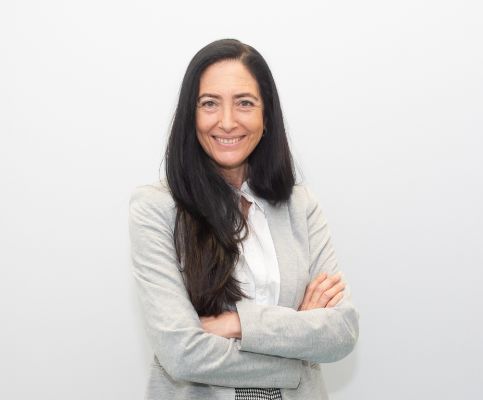

MARIA TERESA BENDITO CAÑIZARES
PROFESORA TITULAR UNIVERSIDAD
DERECHO CIVIL
FACULTAD DE DERECHO
(+34) 91398-8078
Academic Information
Doctor of Law degree from the Carlos III de Madrid University, Social and Legal Sciences Faculty, after reading the doctorate thesis on 29 September 1992, unanimously graded “apto cum laude”.
Academic positions held
I stayed as Visiting Professor at the Center de Droit Prive Fondamental of the Robert Schuman University, in Strasbourg (France), for two academic years (2002-2004). Since October 2004 I worked, as a Seconded National Expert, at the European Commission (DG JLS – Civil Justice and Fundamental Rights Directorate, Unit C-1), in Brussels (Belgium); my secondment finished in October 2008. In December 2008 I returned to my previous position at the UNED.
Research activity
As a University Professor I have devoted my entire professional career to research, teaching, writing, reading and those other activities inherent to that. My CV attests that I have dedicated to go deeply into the study of Civil law at both national and European levels. It witnesses however that I have also concerned myself with other aspects related to the educational process, such as the methodology for a better transmission of knowledge. That is the reason why some of my research work focused on “alternative” teaching methods; besides, the University at which I am a Permanent Professor provides an appropriate environment to put such methods in practice.
Since I took on my position as Permanent Professor of the Civil Law Department at the Faculty of Law of the UNED in 1996, I applied myself to materialize all the experience. I had already acquired in the lecture room and started to work in the area of distance-learning methods. Thus, I created “Legal Games”, a publication in which games are used as a means to facilitate the study of law, in comparison with the rigid learning schemes traditionally applied in this field. I paid particular attention to T.V and radio programmes since I considered them to be key elements of the distance-learning methodology. I also produced and coordinated “university extension” courses, targeted to all potential interested, whatever their age or studies level could be. All these experiences enabled me to further improve my communication and teaching skills. The development of these games as a computer application was also a great experience and deserved a research award. Accordingly, I am a membership of the European Association of Distance Teaching and Learning (EADTU). Currently, I am finishing my last electronic and interactive textbook on real state subjects for my students and other electronic materials for people’s awareness about migrants and refugees.
In my previous job as Seconded National Expert to the European Commission (a dream for any law researcher: to become a member of a legislative body), I worked for four years on texts which already became the greatest European legislative instruments for citizens: The Regulation (EU) 650/2012 on succession and on the creation of the European Certificate of Succession, and The Regulation (EU) on matrimonial property regimes. I am really honoured to have contributed to that. Besides, along this time I had the opportunity to familiarize with the functioning and working methods of the European Union institutions. Therefore, gathering information on and from European Union Member States, processing such information, drafting comparative studies, coordinating multilingual experts and academics groups and conducting meetings thereof, producing reports from a huge number of contributions, drafting proposals with a view to incorporating them in the foreseen legislative instruments, have been common tasks in my previous position. Performing such activities provided me with the opportunity to foster my negotiation capability. Furthermore, it gave me the opportunity to participate in the activities of the different Committees of the European Parliament in connection with the files I was responsible for (matrimonial property regimes and succession and wills).
After I returned to my previous position, I practically take over the Real State and Registry Law subject. Due to the difficulty and complexity of this subject and the lack of teaching time resulting from Bolonia system (only a semester), I proposed at my University to develop an informatic tool that combines the educational resources needed to provide a comprehensive, versatile, customized, easy to update and all-in-one learning and teaching method. This tool is “CANVAS-Real State and Registry”, an enriched electronic book that was born in 2018 as pilot project developed at the UNED. This book is based on two methodologies: neuronal system and scenario system, that allow me to give a holistic vision of the subject and the possibility for students to advance at their own path.Thus, the subject’s topics could be studied however students want to and advance in their knowledge according to their personal own skills, experiences, previous studies, etc. Again, the educational spirit of the project is what inclined me to write and design this grade book.
The subject I am responsible for within the master (Children’s e-rights in the European Union information society), is the result of the research developed during the last two years and my participation in a research team set up by the Complutense University with a view to analysing the varied codes of conduct raised around the world by the Industry as an alternative to legal regulation. My work within this group focused on the analysis of certain self-regulations and co-regulations dealing with children’s privacy protection face to new technologies (ICTs). In these codes of conduct it is possible to detect the implementation of the new generation of e-rights, such as the right to data protection and the right to be forgotten. These rights together with others will be included in the Code of EU Online Rights envisaged in the Digital Agenda for Europe 2020, in which, for sure, special attention will be given to minors, our current and future digital natives.
Teaching
Asignaturas de Grado:
- 6602409- - DERECHO CIVIL DE LA UNIÓN EUROPEA
- 66024083 - TRABAJO FIN DE GRADO (DERECHO)
Asignaturas de Máster:
Programas de Doctorado:

